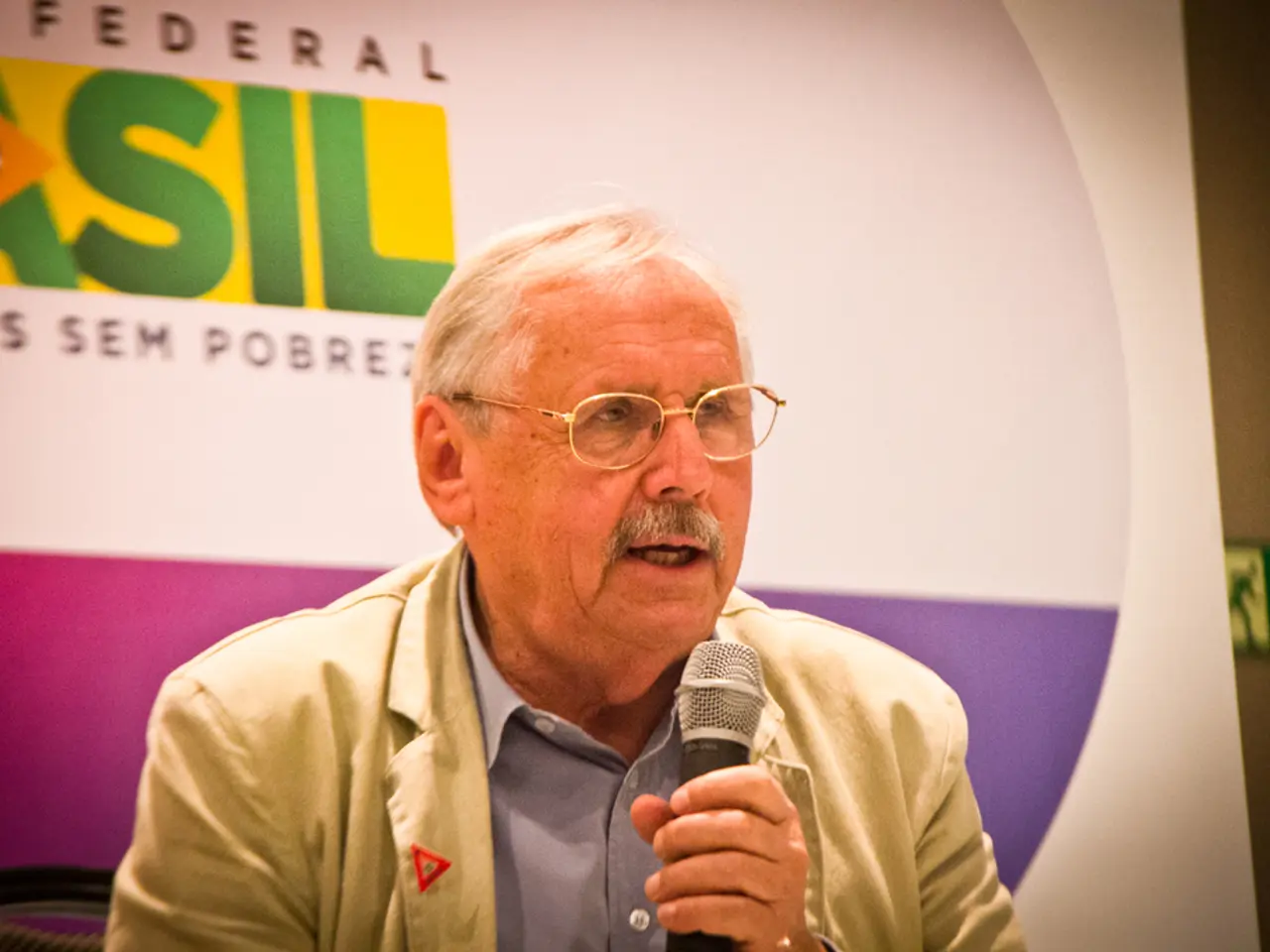Judge appointments sought by Woidke for change
In an unprecedented development, the appointment of three judges for Germany's Federal Constitutional Court has hit a deadlock, with political conflicts within Chancellor Friedrich Merz's coalition government causing a stalemate. The Social Democratic Party (SPD), Christian Democratic Union/Christian Social Union (CDU/CSU), Greens, and the Left Party are embroiled in contentious negotiations and disagreements over candidate selection.
The parliamentary failure to elect new justices has been marked by allegations and sensitive political issues, intensifying tensions within the governing coalition and between parties. The SPD's deputy leader Dirk Wiese has publicly lamented the situation as detrimental to democracy, indicating the scale of the political friction.
The CDU/CSU, led by Chancellor Merz, is seeking appointments reflective of their coalition priorities. However, opposition and left-leaning parties like the SPD, Greens, and Left Party have resisted certain candidates, either due to ideological differences or controversies surrounding the nominees.
Brandenburg's Minister President Dietmar Woidke, from the SPD, has proposed a fresh start to fill the vacancies at the Federal Constitutional Court. Woidke criticizes the CDU/CSU for not following the agreed path due to a lack of leadership. He suggests all candidates should withdraw and the German Bundestag factions should restart the procedure.
Woidke finds it incomprehensible that a qualified candidate has been discredited by some parts of the CDU/CSU. He believes the factions in the Bundestag need to quickly find a solution to the current deadlock and urges all parties to reach an agreement, including the opposition parties, excluding the AfD.
The Union faction's leadership could no longer guarantee its support for the SPD's nominated candidate, Frauke Brosius-Gersdorf, due to reservations within the Union, particularly regarding her perceived liberal stance on abortion and her positive stance on a mandatory vaccination during the COVID-19 crisis. Brosius-Gersdorf, who has held the chair for Public Law, with a focus on Constitutional and Social Law, at the University of Potsdam since 2021, has faced resistance from the SPD and the Greens.
The Union has nominated federal labor court judge Günter Spinner as an alternative candidate. However, the election of three judges for the Federal Constitutional Court was unexpectedly removed from the Bundestag's agenda on July 11, further complicating the judicial appointments crucial for the Court's independence and functionality.
This political impasse symbolizes broader political fissures in Germany’s current parliamentary landscape under Merz’s administration, and the parties involved must find a solution to ensure the Federal Constitutional Court can perform its vital role effectively.
[1] Merz, F. (2022). Political Impasse Threatens Germany's Federal Constitutional Court. The Berlin Times. [2] Wiese, D. (2022). The Deadlock in Appointing Constitutional Court Judges. The SPD's Perspective. [3] Kaufhold, A-K. (2022). The Alternative Candidate for the Federal Constitutional Court. The SPD's Proposal.
- The political impasse over the appointment of judges for Germany's Federal Constitutional Court, as reported by Merz (2022), stems from policy-and-legislation disagreements, including contentious issues like abortion and mandatory vaccination, within the coalition government and between the governing parties and opposition, as detailed in Wiese's (2022) perspective and Kaufhold's (2022) proposal.
- The negotiations and disagreements over candidate selection for the Federal Constitutional Court, as highlighted by Woidke (2022), can be closely linked to the wider politics and general-news landscape in Germany, with parties emphasizing their ideological differences and controversies surrounding nominees, as seen in the conflict over Frauke Brosius-Gersdorf and the Union's alternative candidate, Günter Spinner.






